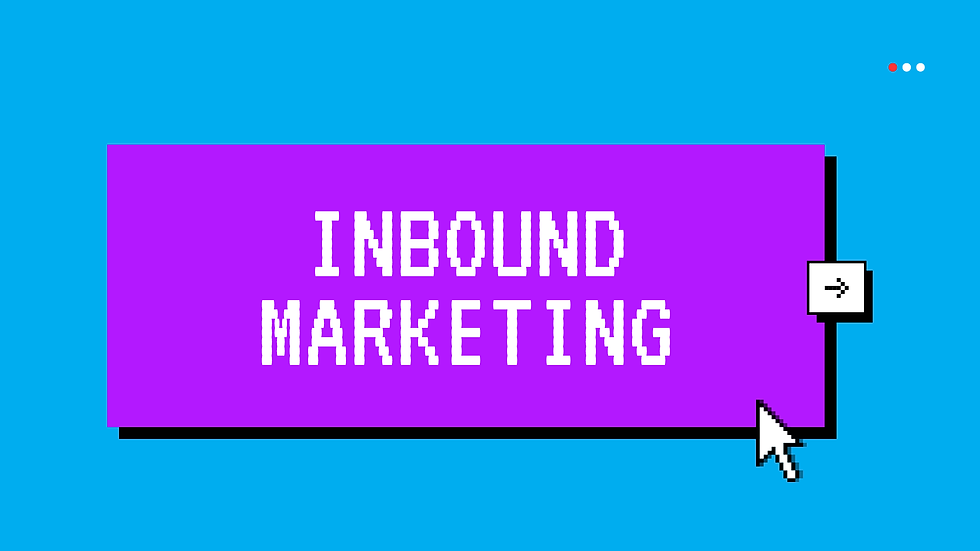What is Email Marketing? - Learn the basics
- Lucas H.

- Jul 18, 2022
- 4 min read

Broadly speaking, email marketing is means by which, via email, you can promote products and services as well as reward loyalty.
Email marketing is a type of marketing that informs customers of new products and offers. You can also use it to educate your customers about the benefits of your brand and keep them interested between purchases.
You can do a lot with it. Many ESPs can help you design and build your email marketing campaigns to maximize your return on investment.
Email marketing is a favored and effective tool for various marketing campaigns.
This article will discuss how email marketing and the use of promotional emails can help you grow your business.
Jump to:
What is email marketing exactly?
What is email marketing exactly?
Email Marketing is an effective marketing channel. This includes direct and digital marketing that uses email to promote products and services.
You can also notify your customers about the latest offers and products by integrating them into your marketing automation. It can also be an integral part of your Marketing Strategy. This includes lead generation, brand awareness building relationships, and keeping customers engaged between purchases through various types of marketing emails.
An overview of email history
1971 was when Ray Tomlinson sent the very first email. While the message was only a string of numbers or letters, it marked a turning point in communication. Tomlinson also introduced the use of the "@" symbol in email addresses.
Gary Thuerk was a Digital Equipment Corp Marketing Manager. He used this new method to communicate with people about a product in 1978.
His email list contained only 400 addresses. However, the emails that he sent generated around $13,000,000 in sales.
In the early 1990s, the internet was available commercially to all. Communication was changing dramatically.
Marketing discovered that email could be a great way to market. With the emergence of marketing emails, regulators needed to catch up. For example, the UK's Data Protection Act was modified to include an "opt-out" option for all marketing emails.
Email marketing offers many benefits
Email is an extremely popular marketing tool for small businesses because it forces users to take action. Emails will sit in your inbox until they are read, deleted or archived.
Nonetheless, email is one of the most cost-effective tools. In fact, a 2015 study conducted by the U.K. based Direct Marketing Association found that email had an average return to investment (ROI), of $38 for every $1 dollar spent.
Email Marketing can help you build relationships with your audience while also driving traffic to your blog, Social Media, and any other places you wish people to visit.
You can segment your email by demographic to ensure you are only sending it to the people who want to receive it.
Email marketing software or ESPs can be used to create and send emails. We did a few reviews on ActiveCampaign and Mailerlite, so you can read those here:
Tips for building your email marketing lists
But how do you build an audience that you can send emails to?
How can you create an audience to send emails as part of your online marketing efforts? There are numerous ways to go about it. Still, all of them involve treating customers right and considering marketing best practices.
Don't buy email lists
Many email marketing companies, including ActiveCampaign, Mailchimp, Mailerlite, and many others, have a strict policy regarding email addresses. It prohibits the sending of emails to any purchased lists.
Lead magnets are a great way to get people to agree to receive messages from you. You might offer a discount for customers who sign up to your email list using a custom form. Maybe you could provide subscribers with free shipping when they sign up for your email list or allow them to win a prize.
Pay attention to national and international email regulations
Send automated and regulart emails according to the Canadian Anti-Spam Law in Canada, the CAN-SPAM Act in the United States, and the General Data Protection Regulation (GDPR) in Europe for the treatment of personal information.
You and your subscribers' locations are taken into account when determining which regulations apply to you. This article contains more information about how to avoid email spam filters.
You can have a conversation about your business with customers by using email
Send out surveys to customers, let them know how much they mean to you after purchasing from you, and follow up with abandoned carts if they leave their items or just say hello. This gives your customers the chance to provide valuable feedback. It also helps them better understand the person behind the business.
Only send emails when necessary
Once you have someone's email address, you shouldn't abuse it. Flooding your audience with unnecessary emails will result in them losing interest or possibly unsubscribing completely.
Send them engaging, relevant messages on the things they enjoy, and they will be loyal for many years to come.




Comments